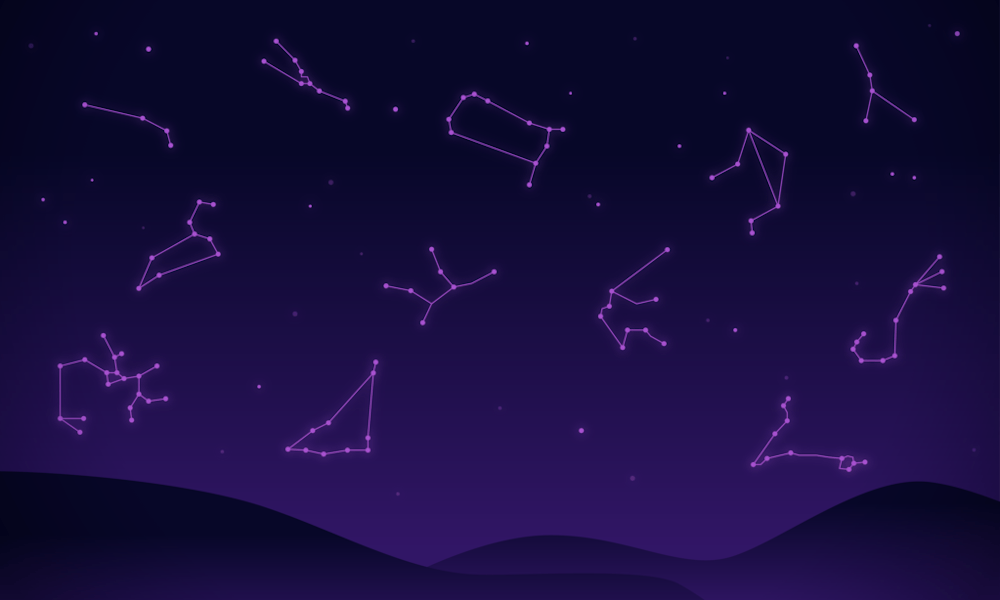Every day at around 11 a.m., Co–Star sends me my daily push notification. Punching in my passcode to see what piece of oddly specific wisdom the app has chosen to bestow upon me, I peruse my chart and read up on how the angle of the moon in relation to Neptune is causing confusion in my personal relationships.
Like the millions of other users who have downloaded Co–Star and similar astrology apps, I have found myself caught up in the recent hype surrounding the study of the zodiac. A newfound staple of our popular culture, zodiac meme accounts have taken social media by storm, while established brands hop on the bandwagon of pumping out cosmic–themed merchandise. Asking a potential love interest for the exact date, time, and location of their birth would have you written off as crazy just a few years ago, yet today it’s a common practice.
Astrology is truly enjoying a day in the sun. But what sparked its rise to prominence? The practice has been a powerful tool in several cultures for centuries, ranging from its Babylonian origins to being a major instrument in Hinduism. But it has witnessed a different adoption as of late. For the young people of today, brushing up on astrology has become a powerful tool for self–reflection.
For starters, astrology coaxes us to take a closer look at who we are and how we relate to the world around us. Reading about your sun sign—as well as the rest of your birth chart—serves two useful purposes: the first is to help you pinpoint the natural strengths that you can take advantage of, while the second is to identify personal weaknesses that hold you back from achieving your desires.
I’m a Virgo through and through. Like many others who share my sign (Beyoncé, Zendaya, and two–fifths of One Direction, to name a few), I’m loyal and hard-working by nature. My mind is always moving a mile a minute, giving unsolicited advice is my passion, and I suffer from a tendency to turn an overly–critical eye towards myself and others.
Thus, I find the most success when I channel my energy into projects that indulge my creativity, though I have to keep my meticulous nature in check. And when it comes to relationships, I have to remember not to be so quick to judge while also making sure to prioritize my own boundaries and emotions.
The cosmos alone may not be responsible for our wins and our losses, but they can open our eyes to the influence we hold over our own destinies. Regardless of whether or not you think that birth charts really do hold the key to the future, these interpretations show us new ways to work through our issues and to improve connections with our family, friends, and partners.
And in the face of uncertainty, astrology provides a space for us to refocus—to sit quietly and consider what we really want. In an era of global pandemics, political unrest, and climate crises (should I go on?), the zodiac serves as a grounding force.
Will a daily reading solve all of your problems? Probably not. But can it be used to spark meaningful reflection about aspects of your life that are in need of attention? Definitely. With the world in disarray, it’s not divine foresight we’re after. It is connection, understanding, direction, and aspects of life our phones may not afford us.
So whether you’re an ardent believer in all things astrological or are more on the occasional scroll through a Cosmo reading wavelength, take some time to explore your horoscope. Regardless of what the cynics have to say, astrology can empower us to reclaim control over our futures and to stride confidently towards what lies ahead.

